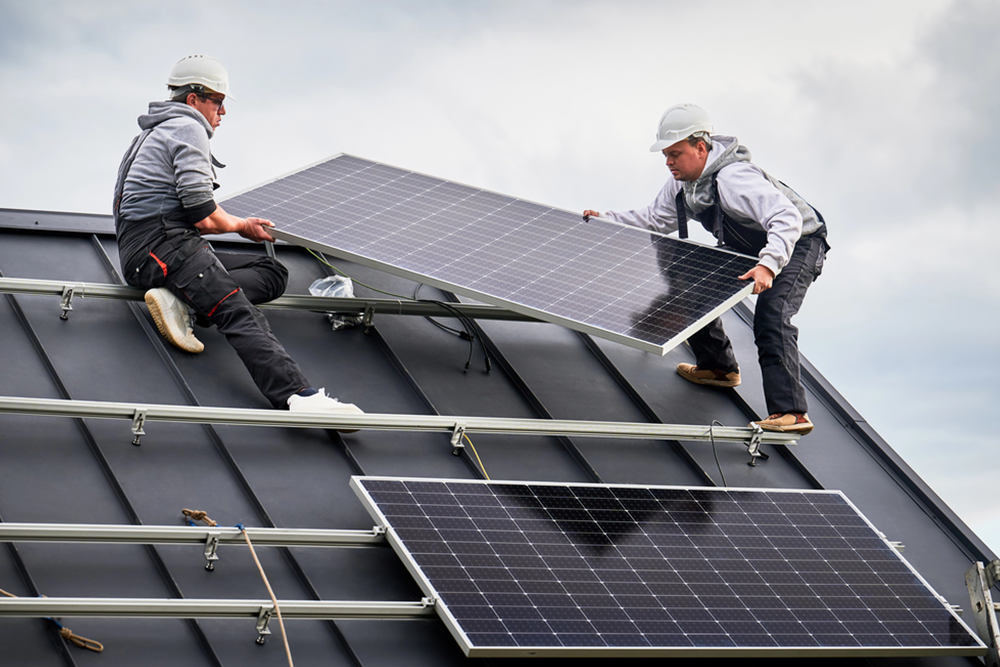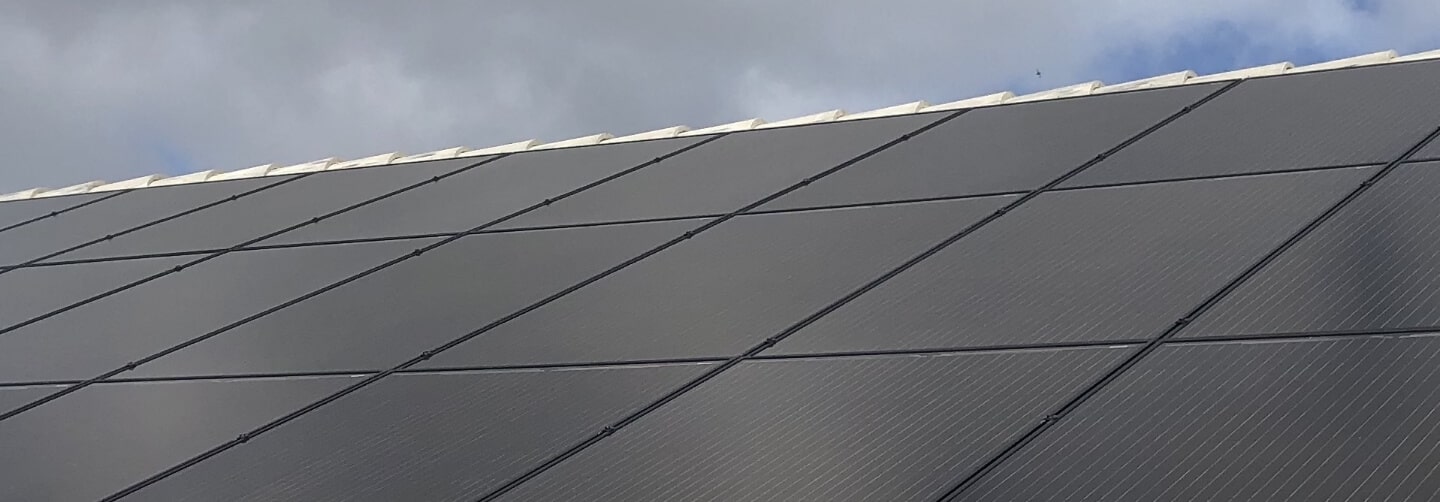Important Considerations Before Installing Solar Panels In Southwest Florida

If you are thinking about solar panel installation in Florida, you are not alone. With the growing demand for clean and renewable energy, many homeowners are considering solar energy to lower their utility bills and reduce their environmental footprint. Florida’s abundant sunshine makes it one of the best states for solar energy.
However, before moving forward with installation, it is important to understand the various factors that will influence the effectiveness and cost of your solar system. Let us discuss the key considerations you should take into account before installing solar panels in Southwest Florida.
Cost of Solar Panel Installation in Florida
The cost of solar panel installation in Florida is one of the first things you should consider. The price can vary widely depending on factors such as the system’s size, the type of panels you choose, and your home’s energy consumption. On average, solar panel systems in Florida cost between $10,000 and $25,000.
A typical residential system in Florida is usually between 5 kW and 10 kW, which can range from $9,000 to $24,000 before applying any available incentives, such as the Federal Investment Tax Credit (ITC). The price is often spread out over the system’s lifespan through financing options or incentives, reducing the immediate financial burden.
While solar panel installation may seem like a significant upfront cost, it offers substantial long-term savings. In Florida, homeowners can save an average of $1,500 per year on electricity bills. Over the life of the system, those savings can add up significantly.
Federal and State Incentives
Florida homeowners are eligible for a variety of financial incentives that reduce the initial cost of solar installation. One of the biggest incentives available is the Federal Investment Tax Credit (ITC), which lets homeowners claim 30% of their solar system’s cost as a credit against their federal taxes. For example, if your system costs $20,000, you could potentially reduce your tax liability by $6,000. This can significantly lower the upfront costs of installation.
In addition to the federal incentives, Florida offers a property tax exemption for the added value of the solar system. This means that your property taxes will not increase due to the installation of the solar panels, making solar an even more affordable option. Some local utilities also offer rebates and financing options, so it is worth checking with your local provider.
Roof Suitability and Space
One of the most important considerations when planning for solar panel installation in Florida is the suitability of your roof. The angle, orientation, and size of your roof will determine how much sunlight your panels will receive and how many panels can be installed. Ideally, solar panels should face true south in the Northern Hemisphere to capture the most sunlight.
Roof space is another important factor. If your roof is small or shaded by trees or nearby buildings, you may need more efficient solar panels to meet your energy needs. It is important to have a professional solar installer assess your roof to determine how many panels it can accommodate. In some cases, ground-mounted solar systems are an option if your roof space is limited.
Additionally, if your roof is aging or in poor condition, it may need repairs or replacement before the solar panels can be installed. Installing solar panels on a deteriorating roof can lead to additional costs down the road.
Panel Efficiency and Types
Not all solar panels are created equal. There are three main types of solar panels: monocrystalline, polycrystalline, and thin-film. The type of solar panel you choose will impact both the cost and performance of your system.
- Monocrystalline panels are the most efficient, offering the most energy per square foot, but they are also the most expensive.
- Polycrystalline panels are a more affordable option but slightly less efficient than monocrystalline panels.
- Thin-film panels are the least efficient but are often the most budget-friendly option.
Choosing the right type depends on your available roof space, energy needs, and budget. If your roof has limited space, monocrystalline panels may be the best option. However, if you have plenty of space and a tighter budget, polycrystalline or thin-film panels may be worth considering.
Climate and Sunlight Availability
Florida is known for its sunny weather, making it an ideal location for solar panel installation. However, the amount of sunlight you receive can vary depending on the time of year and weather conditions. In Southwest Florida, residents can expect around 5 to 7 hours of sunlight per day, which is ideal for solar energy generation.
Despite Florida’s sunny reputation, it is important to consider local weather patterns. Florida’s rainy season, which occurs between May and October, can lead to cloudy or overcast days that reduce the efficiency of your solar system. To compensate for less sunlight during the rainy season, you may want to opt for a slightly larger system or incorporate solar batteries for energy storage, for a steady power supply even on cloudy days.
Maintenance Requirements
One of the main advantages of solar energy systems is their relatively low maintenance. Solar panels are durable and designed to withstand the elements, but they do require some care to make sure they continue to perform efficiently.
Regular cleaning of the panels is important to remove dirt, leaves, and debris that can block sunlight and reduce efficiency. In Southwest Florida, where humidity and storms are common, you should clean the panels at least once a year, or more frequently if you live in a heavily wooded area.
Additionally, you should have your system professionally inspected every few years to check for any potential issues with wiring or panel performance. Overall, solar systems are quite reliable, and with proper care, they can last 25 years or more.
Solar Batteries and Energy Storage
While solar panels generate electricity during the day, solar batteries allow you to store excess energy for use at night or during cloudy days. Solar batteries can be a valuable addition to your solar system if you want to maximize energy independence and reduce reliance on the grid.
In Florida, where power outages can occur due to storms, solar batteries can also offer backup power during emergencies. The upfront cost of solar batteries can be high, but they offer long-term savings and additional energy security.
Financing Your Solar Panel Installation
For many homeowners, the upfront cost of solar panels can be a concern. Fortunately, there are several financing options available to make solar energy more accessible.
- Solar Loans: Many financial institutions offer loans specifically for solar panel installations. These loans can be used to cover the cost of the system, and payments are often lower than traditional energy bills.
- Leasing and PPAs: With a solar lease or power purchase agreement (PPA), you can install solar panels without the large upfront cost. A monthly fee is required instead for using the system, which is often lower than your current energy bill.
At Solar Energy Solutions of America, we work with homeowners to explore the best financing options, making sure that going solar is affordable and manageable.
The Value of Solar Energy for Your Home
In addition to lowering your electricity bills, solar panel installation in Florida can increase your home’s value. Studies show that homes with solar systems sell faster and at a higher price than homes without solar. Homebuyers are attracted to homes with solar panels because they offer lower utility bills and a smaller environmental footprint.
This makes solar panel installation not only a way to save on electricity but also a smart investment that pays off when it is time to sell your home.
Additional Solar Solutions
Beyond solar panels, there are other ways to enhance your home’s energy efficiency with solar technology. For example, solar pool heaters offer a sustainable way to keep your pool warm without relying on electricity or gas. These systems use energy from your solar panels to heat the water in your pool, extending your swimming season and saving on energy costs.
Another great addition is solar attic fans, which use solar power to ventilate your attic and reduce heat buildup. This can lower your cooling costs and improve the comfort of your home during Florida’s hot summers.
Local Regulations and Permitting
Before proceeding with solar panel installation in Florida, it is important to understand local regulations and permitting requirements. Each county and city in Florida may have its own set of rules governing the installation of solar systems, including zoning laws, building codes, and permitting processes.
Some areas may require permits to make sure that the solar panels are installed according to safety standards. Additionally, your homeowner association (HOA) may have specific guidelines regarding the appearance of solar panels, especially if you live in a community with strict aesthetic rules. It is important to check with your local government and HOA to avoid potential delays or issues during installation.
Why Choose Solar Energy Solutions of America?
At Solar Energy Solutions of America, we specialize in residential photovoltaic solar electric systems, solar pool heaters, and solar attic fans. We are committed to helping homeowners in Southwest Florida make the switch to solar energy and enjoy the financial and environmental benefits it brings. Our expert team will guide you through every step of the installation process, making sure your system is optimized to meet your energy needs.
